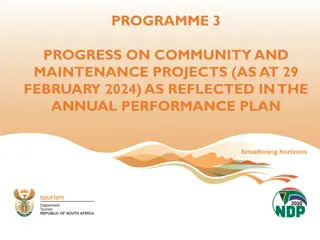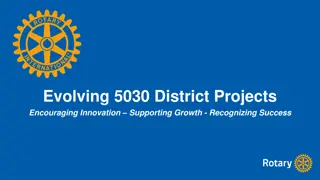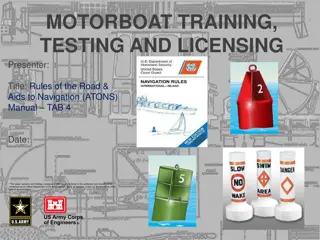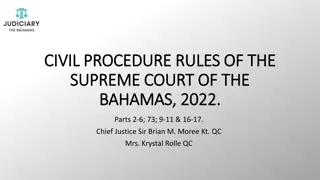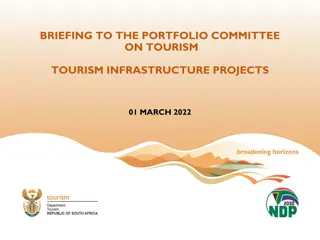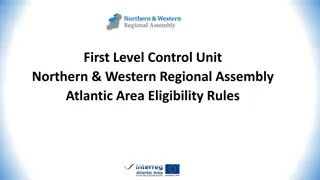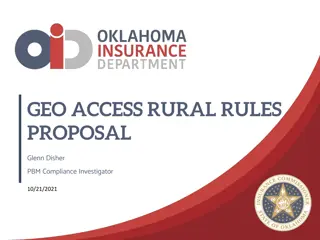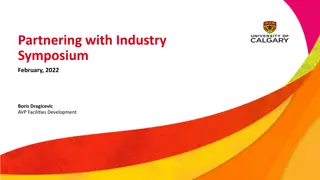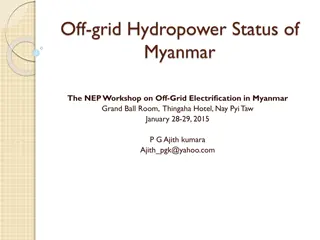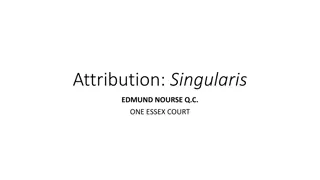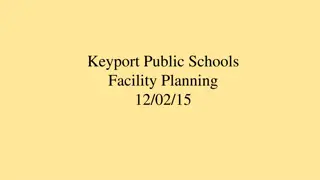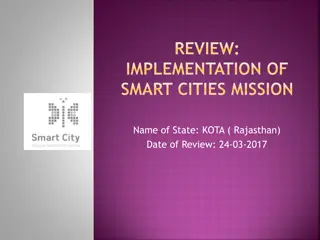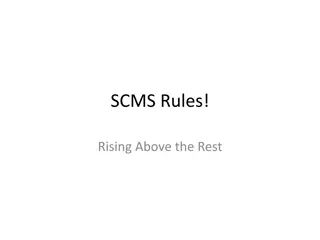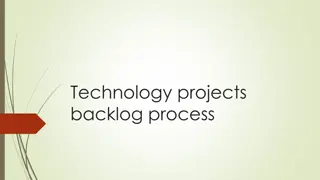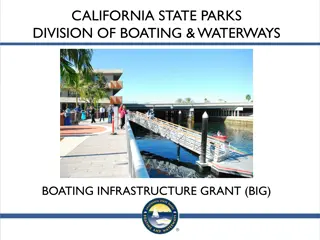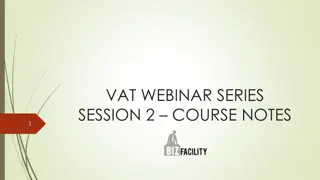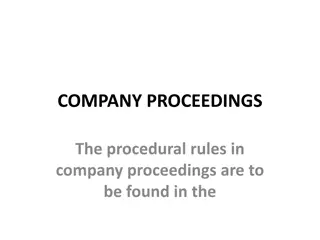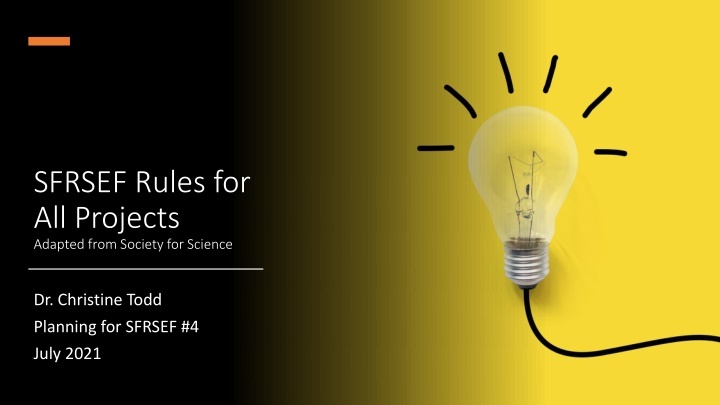
Ethical Standards and Rules for SFRSEF Projects
Upholding ethical standards in student research projects is crucial for participation in the SFRSEF competition. Students and adults involved in projects are required to adhere to integrity, legality, confidentiality, and environmental stewardship. Fraudulent activities like plagiarism and data fabrication are strictly prohibited. Specific eligibility and limitations are outlined, including project criteria, team size, and grade restrictions. Adherence to these rules ensures fair competition and high-quality scientific research.
Download Presentation

Please find below an Image/Link to download the presentation.
The content on the website is provided AS IS for your information and personal use only. It may not be sold, licensed, or shared on other websites without obtaining consent from the author. If you encounter any issues during the download, it is possible that the publisher has removed the file from their server.
You are allowed to download the files provided on this website for personal or commercial use, subject to the condition that they are used lawfully. All files are the property of their respective owners.
The content on the website is provided AS IS for your information and personal use only. It may not be sold, licensed, or shared on other websites without obtaining consent from the author.
E N D
Presentation Transcript
SFRSEF Rules for All Projects Adapted from Society for Science Dr. Christine Todd Planning for SFRSEF #4 July 2021
Student researchers, as well as adults who have a role in their projects, are expected to maintain the highest ethical standards. Ethics Statement These include, but are not limited to: Integrity Legality. Respect for Confidentiality and Intellectual Property Stewardship of the Environment. Animal Care Human Participant Protection. Potentially Hazardous Biological Agents (PHBAs).
Scientific fraud and misconduct are not condoned at any level of research or competition. This includes: plagiarism forgery use or presentation of other researcher s work as one s own fabrication of data. Fraudulent projects will fail to qualify for competition in SFRSEF, SSEF and Regeneron ISEF. SFRSEF reserves the right to revoke recognition of a project subsequently found to have been fraudulent. Scientific fraud and misconduct
Eligibility/Limitations 1. Each secondary public, charter or private school may send to SFRSEF the number of projects per the SFRSEF agreement. 2. A student must be selected by the school of record and be in grades 6-12. 3. Student project boards and abstracts must be in English. 4. Each student is only allowed to enter one project that may include no more than 12 months of continuous research and may not include research performed before January 2020. 5. Team projects must have no more than three members. 6. Students may compete in only one regional fair, except when proceeding to a state fair affiliated. 7. Projects that are demonstrations, library research or informational projects, explanation models or kit building are not appropriate for the SFRSEF. 8. Projects represent sciences and engineering disciplines and compete in one of the 13 categories. 9. A research project may be a part of a larger study performed by professional scientists, but the project presented by the student must be only their own portion of the complete study.
1. Animal Sciences 2. Behavioral & Social Sciences 3. Biomedical & Health Sciences 4. Cellular/ Molecular Biology & Biochemistry 5. Chemistry 6. Earth & Environmental Sciences 7. Engineering 8. Environmental Engineering 9. Intelligent Machines, Robotics and Systems Software 10. Mathematics & Computational Sciences 11. Microbiology 12. Physics & Astronomy 13. Plant Sciences Categories (https://ssefflorida.com/categories/)
1. All students competing in the SFRSEF must adhere to all rules as set forth in this presentation. 2. All projects must adhere to the Ethics Statement. 3. It is the responsibility of the student and the Adult Sponsor to evaluate the study to determine if the research will require forms and/or review and approval prior to experimentation. 4. Projects must adhere to local, state and U.S. Federal laws, regulations, and permitting conditions. General Requirements 5. The use of non-animal research methods and alternatives to animal research are strongly encouraged and must be explored before conducting a vertebrate animal project. 6. Introduction or disposal of non-native, genetically-altered, and/or invasive species (eg. insects, plants, invertebrates, vertebrates), pathogens, toxic chemicals or foreign substances into the environment is prohibited. It is recommended that students reference their local, state or national regulations and quarantine lists. 7. All projects must adhere to the requirements of the SFRSEF to qualify for participation in SSEF and Regeneron ISEF.
Approval and Documentation 1. Project documentation should begin before experimentation with the current forms available. Projects involving human participants, vertebrate animals, and potentially hazardous biological agents must be reviewed and approved by the school s IRB or SRC prior to the start of experimentation. 2. Every student must complete the Student Checklist (1A), a Research Plan/Project Summary, an Approval Form (1B) and Risk Assessment Form (3) and review the project with the Adult Sponsor in coordination with completion of the Checklist for Adult Sponsor (1). 3. A Qualified Scientist is required for all studies involving Biosafety Lab-2 (BSL-2) potentially hazardous biological agents and DEA-controlled substances and is also required for many human participant studies and many vertebrate animal studies. 4. After initial IRB/SRC approval (if required), any proposed changes in the Student Checklist (1A) and Research Plan/Project Summary must be re-approved before laboratory experimentation/data collection resumes. 5. Projects which are continuations of a previous year s work and which require IRB/SRC approval must undergo the review process with the current year Research Plan/Project Summary prior to experimentation/data collection for the current year. 6. Any continuing project must document that the additional research is new and different. (Continuation/Research Progression Projects Form (7). 7. If work was conducted in a regulated research institution, industrial setting or any work site other than home, school or field at any time during the current project year, the Regulated Research Institutional/Industrial Setting Form (1C) must be completed and displayed at the project booth. 8. After experimentation, each student or team must submit a (maximum) 250-word, one-page abstract which summarizes the current year s work. The abstract must describe research conducted by the student, not by the supervising adult(s). 9. A project data book and research paper are not required but are strongly recommended for judging purposes.
Submission of forms generated by a digital system are allowable under the following conditions: 1. The forms must have the same content and order as the Regeneron ISEF forms. Digital Paperwork and Signatures 2. Digital signatures must have a verification system via login and have a time and date stamp to indicate this authentication. 3. Paperwork submitted to SFRSEF Shared Folder for SFRSEF must be scanned and submitted via the online portal.
Continuation/ Research Progression of Projects Students will be judged only on laboratory experiment/data collection performed over 12 continuous months beginning no earlier than January 2021 and ending December 2021. A continuation/research progression project must document that the additional research is a substantive expansion from prior work The display board and abstract must reflect the current year s work only. Longitudinal studies are permitted as continuation if: a. The study is a multi-year study testing or documenting the same variables in which time is a critical variable. b. Each consecutive year demonstrates time-based change c. The display board is be based on collective past conclusionary data and its comparison to the current year data set. All projects must be reviewed and approved each year and forms must be completed for the new year. The Continuation Research Progression Project Form (7) is required for projects in the same field of study as a previous project.
Team Projects Team projects compete and are judged in the category of their research. Teams must have no more than three members. Team membership cannot be changed during a given research year unless there are extenuating circumstances and the local SRC reviews and approves the change. Each team is encouraged to appoint a team leader to coordinate the work and act as spokesperson. Each member of the team should be able to serve as spokesperson, be fully involved with the project, and be familiar with all aspects of the project. The final work should reflect the coordinated efforts of all team members and will be evaluated using the same judging criteria as individual projects. Each team member must submit an Approval Form (1B) and jointly submit the Checklist for Adult Sponsor (1), one abstract, a Student Checklist (1A), a Research Plan/Project Summary and Risk Assessment Form (3), and other required forms. Full names of all team members must appear on the abstract and forms.
SFRSEF Contacts Dr. Aileen Vega, Executive Director Curriculum Support- Science, avega3@dadeschools.net Ms. Wendy Forteza, Instructional Supervisor High Science Education, wfoteza@dadeschools.net Dr. Christine Todd, Curriculum Support Specialist/ SFRSEF Director, ctodd-gibson@dadeschools.net

